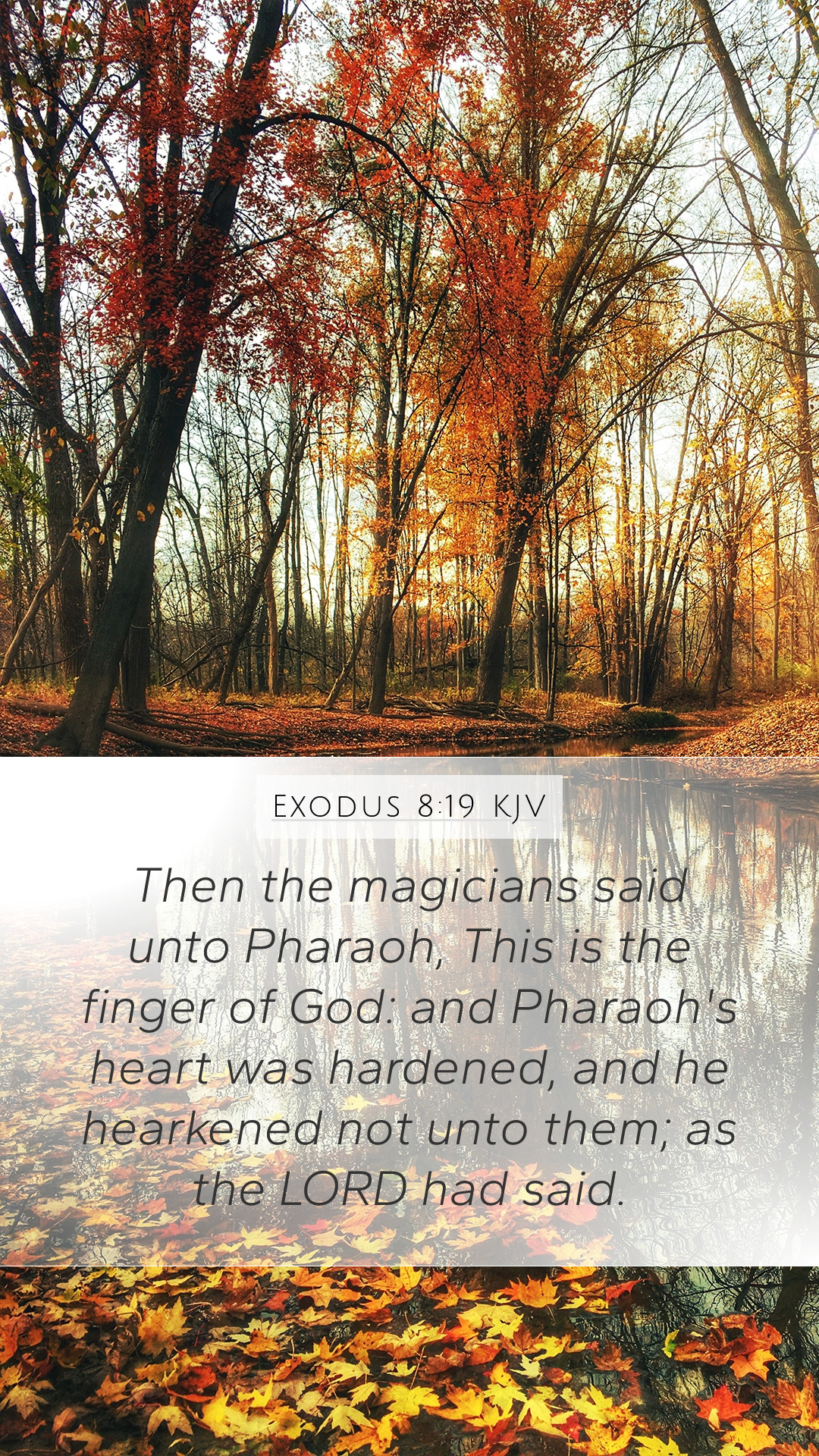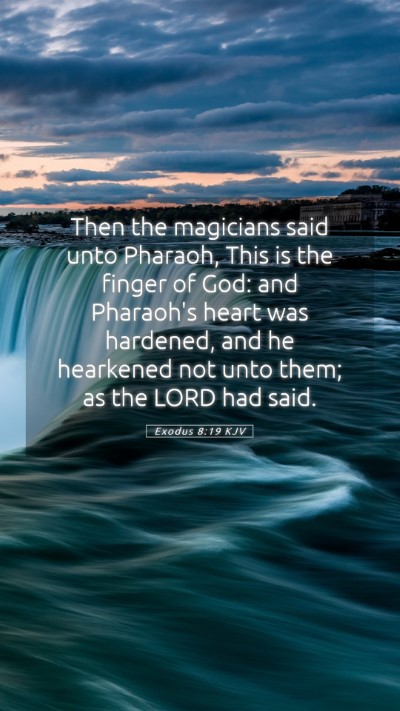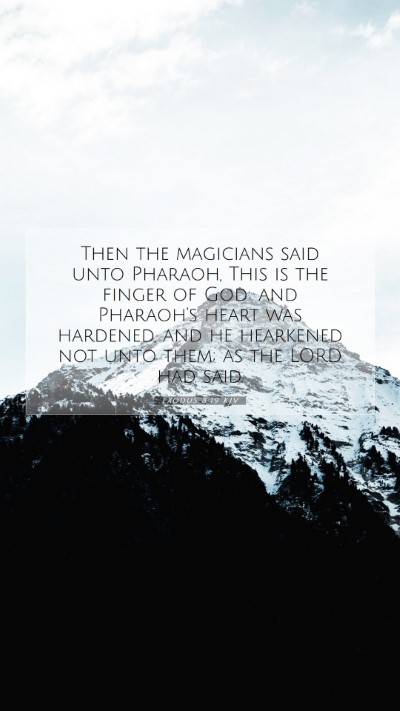Bible Verse Commentary: Exodus 8:19
Verse: "Then the magicians said to Pharaoh, 'This is the finger of God.' But Pharaoh's heart grew hard, and he did not heed them, just as the Lord had said."
This verse plays a significant role in demonstrating the power of God as opposed to the sorcery of the magicians in Egypt. The proclamation of the magicians serves as a recognition of a divine hand at work, emphasizing the limitations of human abilities when faced with supernatural authority.
Meaning of Exodus 8:19
The verse expresses a pivotal moment in the narrative of Moses' confrontations with Pharaoh. The magicians acknowledge that the plagues – specifically, the plague of gnats – are beyond their manipulation. Their admission, "This is the finger of God," signifies an understanding of God's divine power manifesting in the wonders and plagues.
Insights from Commentaries
-
Matthew Henry's Commentary:
Henry emphasizes that the magicians' admission underscores the superiority of God’s power compared to their own. Their failure to replicate the plague indicates that the miracles performed by God are not merely tricks, but profound signs meant to communicate His sovereignty. This acknowledgment by the magicians also serves to illustrate the futility of relying on human wisdom in opposing the will of God.
-
Albert Barnes' Notes:
Barnes elaborates on the phrase "the finger of God," highlighting it as a metaphor for divine intervention. The magicians' recognition implies that they were aware of the divine source behind the plagues but failed to convince Pharaoh. This indicates the hardened state of Pharaoh’s heart, which becomes a significant theme throughout the Exodus narrative. Barnes suggests that even in the face of undeniable evidence of God’s power, people may still choose to reject His authority.
-
Adam Clarke's Commentary:
Clarke points out the contrast between the magicians' skills and the overwhelming power of God. He notes that this moment serves as a crucial turning point where the limits of magic are brought to light. Clarke discusses the hardness of Pharaoh’s heart as not just an emotional state but as an act of willful defiance against divine authority. This encapsulates a significant theological theme regarding human rebellion and God's judgment.
Theological Implications
The acknowledgment of divine power by the magicians serves a dual purpose: it reinforces God's authority while simultaneously highlighting human impotence when faced with true divinity. This verse encourages believers to recognize the sovereignty of God over all creation and the importance of humility in the face of His will.
Cross References
- Exodus 7:11-12: The magicians replicate earlier miracles, showcasing the limits of their power.
- Romans 1:20: The idea of recognizing God's invisible attributes through creation.
- 2 Timothy 3:8: Reference to Janes and Jambres who opposed Moses, similar to the Egyptian magicians.
Application in Daily Life
Understanding this verse can help individuals recognize the importance of seeing God's hand in events around them. It calls for reflection on the power dynamics between human capability and divine sovereignty. Believers are encouraged to submit to God's authority rather than resist it, and to acknowledge God’s involvement in their lives.
Conclusion
Exodus 8:19 is a profound reminder of God's omnipotence and the ultimate futility of opposing Him. This passage serves as a crucial lesson for individuals engaging in Bible study, allowing for an understanding of scripture that goes beyond mere academic analysis. It invites introspection on one’s own heart and willingness to recognize and submit to the divine will of God.


